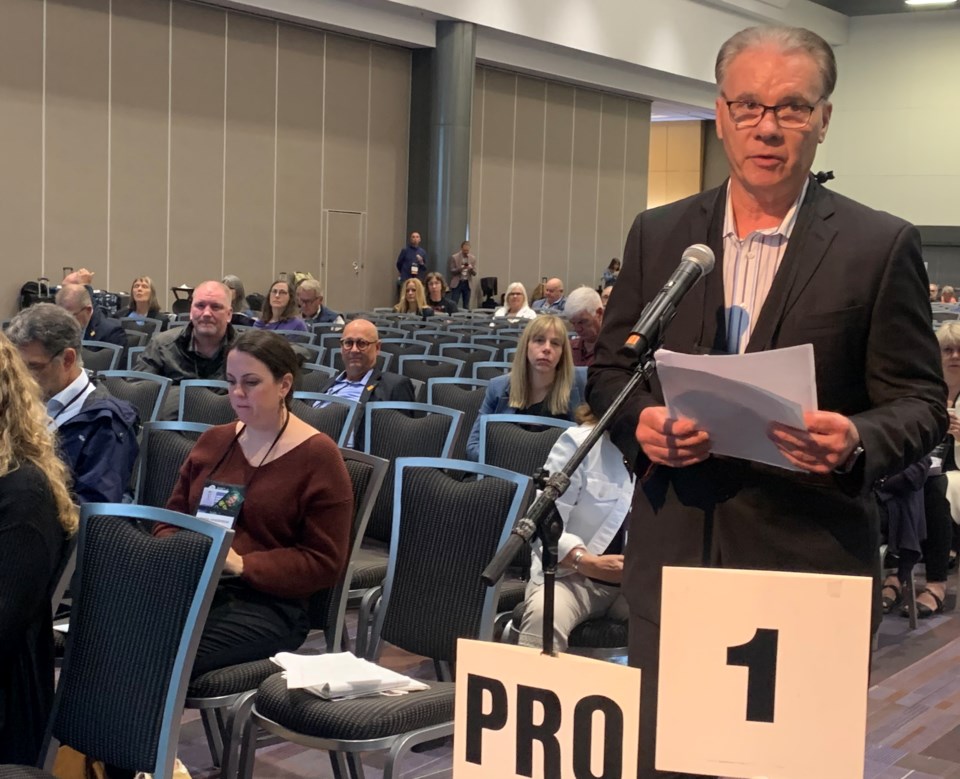B.C. municipalities are urging the province to work with the federal government to find a funding model to reinstate the federal port police.
The request is based on a resolution put forward by the City of Delta at the Union of B.C. Municipalities convention in Vancouver.
The Ports Canada Police was disbanded in 1997 and the Vancouver Fraser Port Authority discontinued its financial contribution to the RCMP-led Waterfront Joint Forces Operation in 2015.
Delta Mayor George Harvie said inaction in port policing has led to significant problems with waterfront crime, contributed to the addiction overdose public health emergency and led to Canada being seen as a leading exporter of narcotics.
“It is a problem. Absolutely,” Harvie said.
He said the loss of police resources has weakened the security of Canada’s ports and allowed organized crime elements to proliferate, as evidenced by the 2023 Peter German report Policing our Ports.
And, said Vancouver Coun. Lisa Dominato, the issue is not just one for Deltaport. No, she said, it is one that affects all B.C. ports.
The resolution said provincial and federal governments have statutory authorities regarding taxation and fees related to the port and the transportation of shipping containers.
Port of Vancouver
The resolution requests Victoria work with Ottawa and port municipalities to develop a shipping container levy as a funding mechanism to re-establish dedicated resources to police ports and waterfronts, including the Port of Vancouver to address the issue of organized crime operating through Canada’s ports.
At a fall 2023 Delta Police Board meeting, then-police chief Neil Dubord said a small fee for every container could go a long way in addressing the major security concerns at Deltaport.
Noting that about 30,000 people enter the port on a regular basis, of which only 7,000 are security-cleared, Dubord said clearance is an issue that needs to be addressed.
“A $10 surcharge is very small. That’s the price of a latte, almost. That money would be dedicated to a security team that would be able to police the ports, both on the general duty side and beefing up the investigative side as well,” Dubord said.
All commodities, not just containers
Delta’s desire for changes has support from GCT Global Container Terminals, although public affairs vice-president Marko Dekovic said in a Sept. 4 letter further deliberation is needed.
Dekovic said key considerations should include security across all port terminals with enhancements that should apply to all port terminals handling all commodities, not just containers.
He said limiting the focus to containers excludes significant segments of commodity trade on all Canadian coasts from improved safety and security measures.
And, Dekovic said, introducing an additional policing agency to an already complex mix of responsible agencies may not be the most effective approach to achieving the desired outcomes.
Dekovic also advocated a national framework.
“Engagement and consultation with mayors and port authorities nationwide, along with support from the federal government, are essential to ensuring a coherent and effective national framework for port security," he said.
"These are just a few key points we believe are critical to consider before adopting a narrow and potentially ineffective approach to this important issue. A broader, more thoughtful strategy is needed to ensure the positive outcomes we all seek.”
- with files from Sandor Gyarmati



